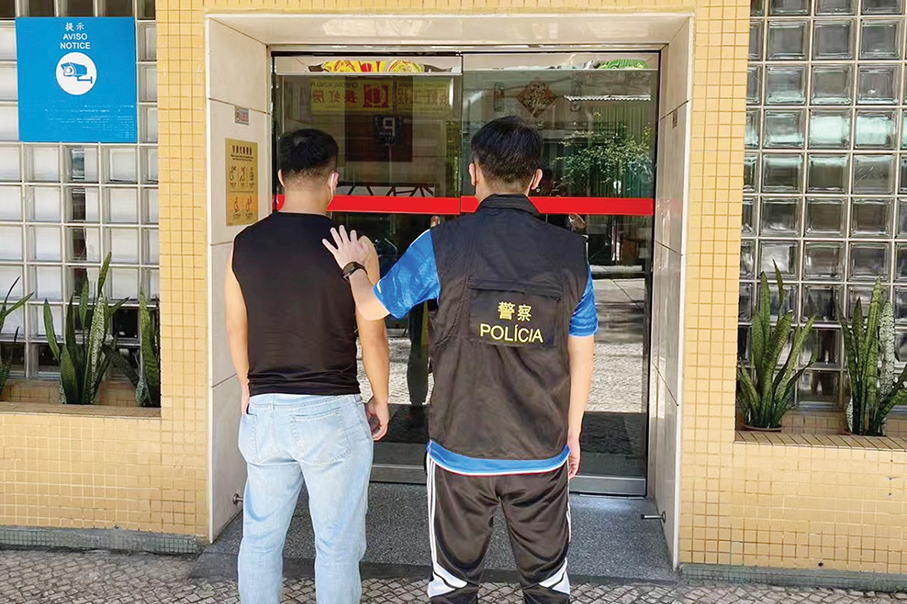The central authorities have put Taiwan’s hardcore separatists, those seeking foreign support in particular, on final notice, urging them to accept the “One China” principle or face the music, capital punishment in extremis.
A set of guidelines was jointly released by the Supreme People’s Court, the Supreme People’s Procuratorate and the ministries of public security, state security and justice in Beijing on Friday. The guidelines impose criminal penalties on “diehard” supporters of “Taiwan independence” for engaging in or inciting separatist activities.
The guidelines, which use the term “diehard” for clarification, provide for the possibility of trial in absentia.
An article by Xinhua pointed out that the new judicial yardstick comes “against a backdrop of escalating tensions across the Strait triggered by repeated separatist attempts made by those advocating ‘Taiwan independence’, particularly since the island’s new leader [William] Lai Ching-te, who holds a stubborn separatist stance, took office in May.”
Lai, a former physician, is a veteran member of the pro-independence Democratic Progressive Party (DPP). He started his political activism as a member of the party’s “deep green” New Tight faction which de jure was dissolved in 2005 but de facto continues to be the DPP’s largest faction.
According to Xinhua, the set of guidelines “also acts as a warning and deterrent to external forces who would not keep their hands off affairs related to Taiwan”.
While all the 183 countries that maintain diplomatic relations with the People’s Republic of China (PRC), i.e., 95 percent of the member states of the United Nations other than the PRC, formally recognise the “One China” principle, it is the world’s worst kept secret that some of them favour Taiwan’s “de facto” separation from the Chinese mainland, although none of them would be brazen enough nowadays, considering China’s politico-economic might on the international stage, to advocate openly for the island’s “de jure” independence.
Western nations’ rejection or backing of separatism in foreign countries is not a matter of principle but depends merely on geopolitical consideration. For instance, while most Western governments have supported Kosovo’s secession from Serbia, they have kept their hands off the Catalan separatism row in Spain. For obvious reasons, the Spanish government continues to regard Kosovo’s unilateral declaration of independence in 2008 as a violation of international law.
Similarly, while some Western countries have cast doubts again and again on the Hong Kong Special Administrative Region’s – and recently even Macau’s – autonomy status within the PRC, they have remained virtually mum on the Indian government’s revocation of the special autonomy status of Jammu and Kashmir in 2019.
According to Xinhua, the central authorities’ new guidelines concerning “Taiwan independence” are based on the mainland’s Anti-secession Law, the Criminal Law and Criminal Procedure Law, and they only target “clearly-defined circumstances” under which the island’s “diehard” separatists are, for instance, “organising, plotting or carrying out schemes of ‘de jure independence’ or seeking independence by relying on foreign support or by force.”
The guidelines also stipulate that those found to “have colluded with any foreign or overseas institution, organisation or individual in committing such crimes, should be given a harsher punishment.”
The guidelines also state “that such criminal acts include advocating for Taiwan’s entry into international organisations limited to sovereign states or engaging in official exchanges and military contacts abroad to create ‘two Chinas’ or ‘one China, one Taiwan’ in the international community.
Supported by a number of foreign countries, the Taiwan authorities have for years tried in vain to join the World Health Assembly (WHA), the governing body of the World Health Organisation (WHO).
According to Article 6 of the set of guidelines, “those who commit the crime of splitting the state may be sentenced to death if the crime causes particularly grave harm to the state and the people or if the circumstances are particularly serious.”
The death penalty is the ultimate and, evidently, irrevocable punishment. I hope, there will never be the perceived need to impose capital punishment as the result of the new guidelines.
Of course, capital punishment does still exist in the Chinese mainland and Taiwan (unlike in Hong Kong and Macau), the US, Japan and about 50 other countries, or about one-quarter of the world’s community of sovereign nations.
However, it is important to underline that the new guidelines stress the “principles of balancing clemency and severity, and proportionality in judicial procedures”, stating that “if diehard ‘Taiwan independence’ separatists voluntarily drop their ‘Taiwan independence” stance, stop conducting separatist activities and take measures to mitigate or undo the harm, or prevent the spread of the damage, they may have their cases dismissed or be exempted from prosecution”.
Moreover, the guidelines also ensure the litigation rights of the suspects or defendants, such as “their right to defence and right to appeal.”
A spokesperson for the Taiwan Affairs Office (TAO) of the State Council pointed out on Friday that “is a common practice for countries around the world to use criminal justice measures to punish criminals who conduct secession and safeguard the core interests of the state.”
Indeed, there are a number of countries that have laws criminalising separatism and/or unilateral secession, such as NATO-member Turkey and ASEAN-member Indonesia.
However, the exact number of countries that have such laws can be difficult to pin down, as the legal definitions and enforcement regarding separatism and secession vary significantly between different jurisdictions.
For instance, back in 1869, the US Supreme Court ruled unilateral secession unconstitutional (Texas v. White).
Friday’s guidelines state that for “Taiwan independence” ringleaders or those committing significant crimes, life imprisonment or a term of imprisonment of more than 10 years can be imposed. Active participants may face imprisonment ranging from three to 10 years, while other defendants involved may be handed down sentences of up to three years and/or deprivation of their political rights.
My interpretation of the toughened guidelines is that they aim to put Taiwan’s intransigent separatists on final notice, warning them of the potentially dire consequences of their actions, particularly those backed by foreign governments, parties and thinktanks.
As someone who grew up just a few kilometres from the border that divided my home country which, thank the powers that be, has been reunited since 1990, I do sincerely hope to be able to witness the peaceful reunification of China in my lifetime (I turned 71 this month). In order to achieve this goal, two main conditions must be met: Taiwan’s “diehard” separatists must come to their senses and accept the historic reality that their island is an inalienable part of China, while certain foreign powers must keep their promise they signed up to when they established diplomatic relations with the PRC that there is only one China in the world that includes Taiwan as its inalienable part – and they must accept the fact that cross-Strait relations are a domestic Chinese matter. I believe that anything else can be discussed within the framework of the 1992 Consensus by the two sides – but necessarily without foreign meddling.
– Harald Brüning







